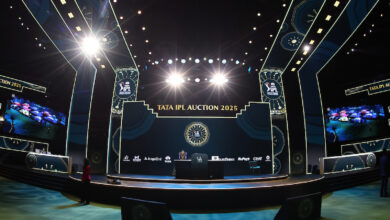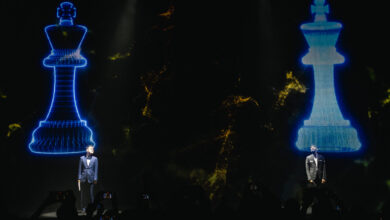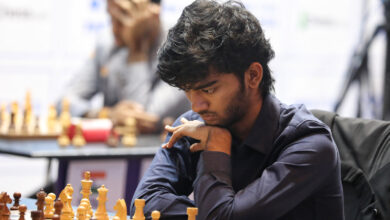The VAR Controversy that wasn’t: What happened in the Manchester United vs Arsenal game that has created yet another VAR uproar?

The English Premier League match between Manchester United and Arsenal courted controversy when Gabrielle Martinelli’s goal was disallowed the VAR for a foul committed on United player Chrian Eriksen. Pundits and fans reacted to VAR’s decision and insinuated that the foul should not have been considered because it was soft and that the goal should have been allowed.
Best among the pundits was ex-Liverpool and Manchester United striker Michael Owen, who admitted that there was a foul, but that the goal should have still been allowed. “This isn’t what VAR is for. It’s not there to re referee games. Yes, it’s probably a foul but it’s not a howler of a decision. I’m surprised that’s been ruled out. Although maybe I shouldn’t be,” said Owen on his Twitter.
This isn’t what VAR is for. It’s not there to re referee games. Yes, it’s probably a foul but it’s not a howler of a decision. I’m surprised that’s been ruled out. Although maybe I shouldn’t be🙄
— Michael Owen (@themichaelowen) September 4, 2022
The incident happened in the 11th minute of the game at a time when United had flown off the gates. Norwegian midfielder Martin Odegaard and Arsenal winger Bukayo Sako converged on Eriksen. Right as the Danish midfielder was shaping his body to pass the ball, Odegaard pushed Eriksen’s upper body away from the ball and caused the midfielder to lose balance and the ball. The ball was immediately picked up Sako, who then supplied a defence-splitting pass to Martinelli. He then ran with the ball into the box and despite pressure from United right-back Diogo Dalot, finished coolly past David de Gea. Celebrations ensued but VAR had plans of its own.
The fourth official was unable to determine whether the foul was there to be given so match referee Paul Tierney was called into action. What he initially deemed as a non-foul, was upon further reflection and a replay, given as a foul him and thus the goal was disallowed. This incident has been tagged along with other incidents related to the VAR and is now being used in arguments against the retrospective refereeing system.
Mikel Arteta spoke about the incident after the game and said, “The referee said [later] it was a really soft decision – we just ask for consency, today we disallowed the goal again, there is nothing we can do unfortunately now.”
England legend Gary Linekar tweeted: “Here we go again. VAR is so tedious.” Liverpool legend James Callagher disagreed. “VAR has a had an awful weekend but it did it’s job in the first half as it was a foul on Eriksen,” he tweeted.
Here we go again. VAR is so tedious.
— Gary Lineker 💙💛 (@GaryLineker) September 4, 2022
Anger towards the Virtual Assant Referee system has burgeoned to a point where every decision made and every grievance the system for play on the football pitch has been met with a crescendo of hatred towards its exence and its impact on the global game in general. There are some obvious cases against the VAR, chief among them being that the time it takes for a decision to be made robs fans and players of an organic combustible moment brought about a great goal, or a rousing tackle. But a foul that led to a goal? These incidents are exactly what gave birth to the idea of the VAR – a foul that led to a goal that could change the tide of a match.
There also needs to be a discussion on what a soft foul is and its impact on the game. Teams like Guardiola’s Man City, or Arteta’s Arsenal or Klopp’s Liverpool commit the most fouls eight seconds after losing the ball.
Why is this static important? Because fouls rob teams of momentum and a soft foul allows the foul-committing team to reset and position their players better to deal with a team that now has possession against them – and the cost of this foul is usually negligible because it rarely is a hard tackle and is mostly not a goal-blocking attempt so a yellow or a red card is rarely brandished.
In the case of Martinelli’s disallowed goal, the foul allowed Arsenal to be in a prime position to launch a counter-attack against a United team that was looking to consolidate in the middle of the pitch. With most of United’s players far out ahead on the pitch, Odegaard’s foul had very little bad consequences for Arsenal. If the referee let play on, it would put Arsenal in a prime position to launch a counter. If the referee gave the foul, it would allow Arsenal to reset their team to a better defensive position. Either way, it was a risk worth taking for the away team.







